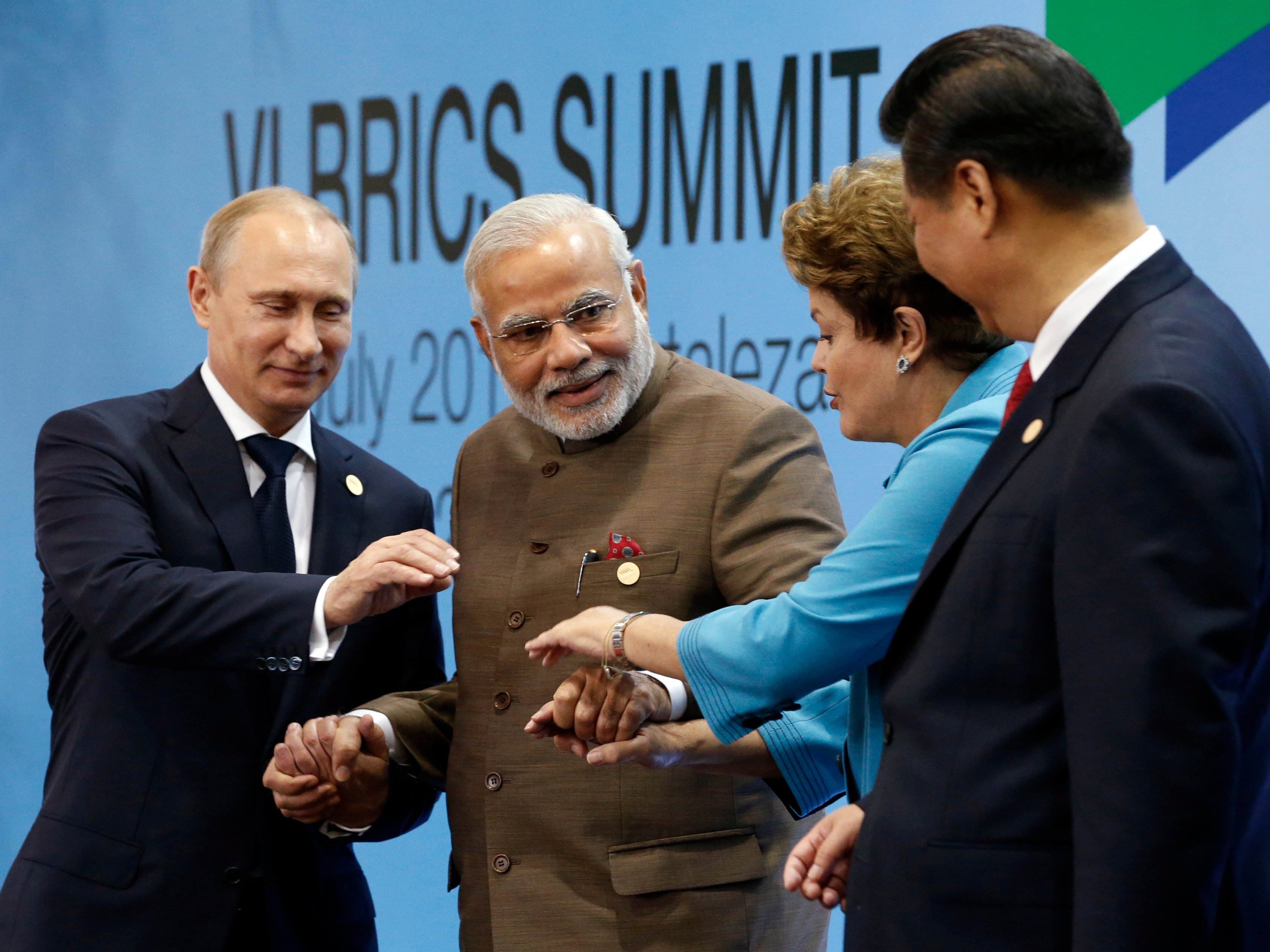
Fourteen years after coining a term that came to define emerging-market investing, Goldman Sachs has ditched the BRICs.
The firm is merging its BRIC fund — which invests in Brazil, Russia, India, and China — with a broader emerging-markets fund, according to a September SEC filing first reported by Bloomberg.
“Over last decade emerging market investing has evolved from being tactical and opportunistic to being a strategic part of most asset allocations,” Goldman Sachs spokesperson Andrew Williams told Business Insider.
“We continue to recommend that our clients have exposure to emerging markets across asset classes as part of their strategic asset allocation.”
The “BRIC” acronym was first used by former Goldman Sachs Chief Economist Jim O’Neill (nowLord Jim O’Neill) to draw attention to four emerging economies he saw as stand outs.
He coined the term in 2001 in an economics paper titled “Building Better Global Economic BRICs.”
It quickly became part of Wall Street’s vernacular, and marked the start of an investment boom in the four markets.
The acronym was used to frame conversations around all emerging markets, with investors spending as much time wondering what country (like Indonesia for example) would be the next BRIC as they did salivating over the profits to be made as Brazilians and Chinese joined the global middle class.
It also inspired a few copycats (EAGLEs, for example, is a group of “emerging and growth leading economies”), though none were quite as catchy.
The term’s usage has expanded outside of the investment community also, with the four countries and South Africa (making it BRICS) recently banding together to form a development bank as an alternative to the World Bank and International Monetary Fund.
Goldman only launched its BRIC fund in 2006. It peaked in 2010, according to the Bloomberg report, and has since lost 88% of its assets.
Earlier this year, O’Neill said he would no longer group the four “BRIC” countries together and predicted that Brazil and Russia could soon be kicked out of the club.
Since that prediction, China has seen a stock market crash and growth problems of its own. That country is now set for its weakest expansion since 1990, according to Bloomberg.
Now, Goldman believes that a combined BRIC and emerging market equity fund “would be better positioned for asset growth” than a standalone BRIC fund, according to the filing.